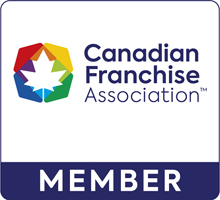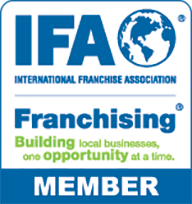Factoring Franchise Royalties Into Your Franchise Opportunity Value Assessment
For most people, evaluating a franchise opportunity is dead serious business. Their research takes the Stanley Resort approach, hoarding as much information as possible from the maximum number of sources. They stream hours of industry analyst talk on YouTube, attend conferences, chat the ears off local shop owners, and burn through rolodexes filled with brand consultants’ phone numbers.
Unfortunately, all that hard work is for nothing if they haven’t developed a clear understanding of the way that franchise royalties factor in. It’s true: a brand can offer top-tier training, marketing, and support services, but if the royalties are out of whack, your investment only makes the franchisor richer.
In today’s post, the FranNet team delves into the details of royalties to help inform your franchise opportunity value assessment.
The Reality of Royalty Fees: Why “Lower” Isn’t Always “Better”
Though exceptions do exist, most franchisors will only allow the franchisee to use their trademarks, brand reputation, and operating system if they fork over a royalty fee. This is standard practice. The franchisor keeps a portion of the royalty fee as profit, but invests much of it towards:
- Researching and developing business best practices
- Conducting operational reviews to maintain brand consistency (and efficiency)
- Providing field support for franchisees
- Covering the costs of initial franchisee training programs and start-up support services
- Expanding training programs and resources for continuing education
- Marketing on a national level
Many people overlook the mutually beneficial nature of royalty fees, thinking of them only as payment going right into the franchisor’s pockets. Though brands with low royalty fees will be more affordable, they are not necessarily better. A higher fee also means a higher level of support.
What royalty fee structure works best for me?
Most royalty fees are paid monthly and are calculated based on the franchisee’s gross sales, excluding refunds and taxes. Some franchisors use a fixed percentage for this calculation, while others implement a tiered system. Others prefer to charge a flat rate that does not change month by month. The latter approach is often used in circumstances where it is impractical for a franchisor to keep track of their franchisees’ sales.
Flat rates can be great for established businesses who would prefer specific, predetermined expenses for the sake of their long-term planning, but they’re not perfect for everyone. Flat rates might be challenging for start-ups trying to build a customer base, and they give the franchisor little incentive to boost the franchisee’s sales.
Think carefully about the nature of your prospective brand’s royalty fees before you decide whether that franchise opportunity is right for you.
Is there a standard royalty fee I should look for?
Franchising is not limited to any one business model or industry, and as a result, prescribing a standard royalty fee is impossible. Fees will range from 3-10+ percent. Many retail businesses sit between 5-6 percent, while service franchisors often ask slightly more.
Royalty fees should be affordable enough for the franchisee to not impact their development, yet large enough so that the franchisor can provide proper support infrastructure.
Are franchise fees negotiable?
Most franchisors are not willing to negotiate on royalties, which is probably not surprising given that consistency is one of the more appealing aspects of franchise ownership. Disparate royalty fees would also increase the likelihood of intra-brand conflicts.
The non-negotiable nature of royalty fees makes it that much more important to get it right from the start.
Find more franchise opportunity assessment resources at http://www.frannet.ca.
About FranNet Canada
FranNet is a 29-year-old company with roots in the U.S. Its purpose being to nurture every entrepreneur’s dream of business ownership. We actively employ a specific profiling and consultation method. This method is geared to each investor with a specific business model and based on franchise trends typically found in Toronto, Ontario, Vancouver, British Columbia, or Calgary, Alberta. The most lucrative Canadian franchise opportunities are waiting for you. For more details visit - http://frannet.ca/buy-a-franchise/canada-franchise-buying-process/





